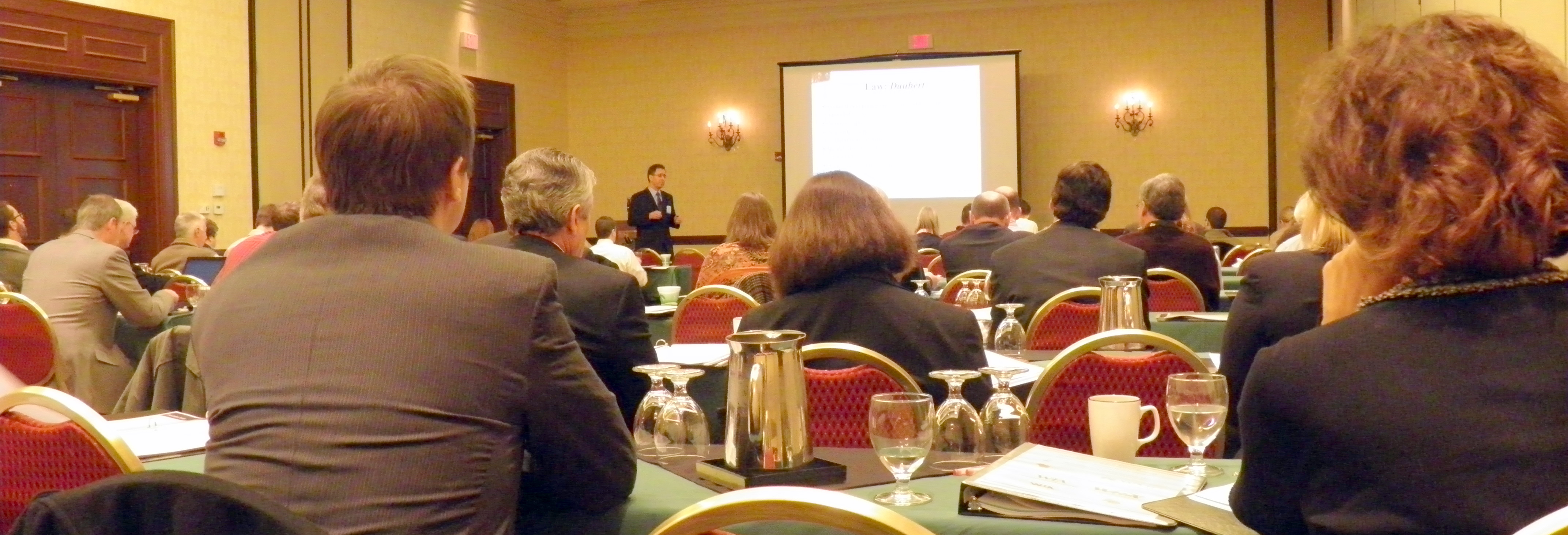One of the most important pieces of legislation supported by the Wisconsin Civil Justice Council in 2011 was the adoption of the Daubert standards for the admission of expert opinion evidence, bringing Wisconsin in line with the entire federal system and a majority of states. A comprehensive understanding of decisions and trends from other jurisdictions will be critical for Wisconsin lawyers as the standards are implemented in Wisconsin. In an effort to educate the legal community on these important new standards, WCJC organized and hosted Daubert Comes to Wisconsin – A CLE Summit on Expert Opinion Evidence on January 11, 2012.

Attendees proclaimed the Summit a great success, applauding the high caliber speakers for their engaging presentations.
Ric Gass, of Gass Weber Mullins LLC, lead off with a discussion of how the Daubert standard improves the quality of scientific information presented to juries and why that is a good thing. Dan La Fave, of Whyte Hirschboeck Dudek, then gave attendees an introduction to the American Society for Testing and Materials (ASTM) standards, which included information on how to assess both your experts and those of the opposing party.
Daubert is not just for toxic tort or complex medical malpractice suits, it is relevant in all cases involving experts. Don Best and Ed Sarskas, of Michael Best & Friedrich LLP, provided an example of how Daubert is used in intellectual property cases.
After lunch, John Sear, of Bowman and Brooke, provided attendees with an overview of the case law since Daubert, and an overview of his recommended Daubert Checklist.
Judge Rudolph Randa of the U.S. District Court for the Eastern District of Wisconsin, who has written more Daubert decisions than any other judge in the Eastern District, then provided practical advice to attendees based on some of the cases he had dealt with. Judge Randa reminded attendees that it is their responsibility to educate the judges about their experts, but that judges must also educate themselves about expert evidence.
Crivello Carlson attorneys Sam Hall and Travis Rhoades provided an informative look at special issues related to medical evidence, and reviewed common fallacies to watch for.
The last presentation of the day was a joint effort by Michael Brennan and Brian Cahill of Gass Weber Mullins to provide attendees with resources they can use when dealing with experts in “soft science.”
All of the resource materials from the Summit are available on the WCJC website.

WCJC would like to thank the Wisconsin Defense Counsel (WDC), the Wisconsin Insurance Alliance (WIA), the Wisconsin Hospital Association (WHA), the Wisconsin Association of Manufacturers and Commerce (WMC), the Wisconsin Utilities Association (WUA), and the Wisconsin Electric Cooperative Association (WECA) for their support of Daubert Comes to Wisconsin.
